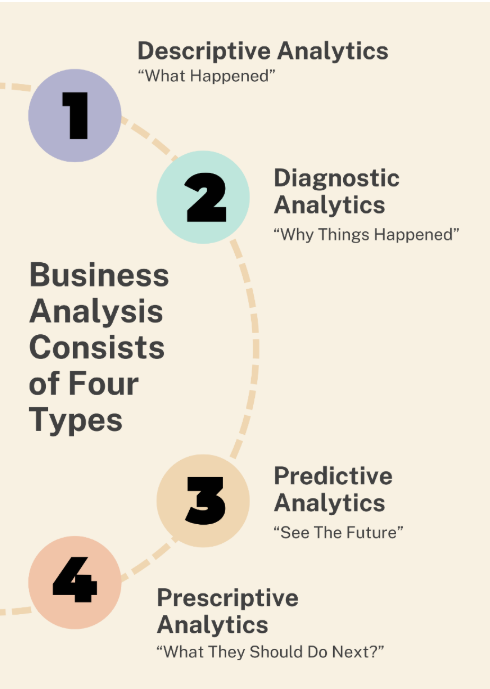
Business Analysis is a technical branch of an organization that deals with optimizing and managing critical data. This primarily helps the company to keep track of their current progress and directly contributes to their future growth.
Keeping the technical aspects of the position in the mind today companies are looking for Business Analyst role, who are equipped with skills to find solutions and maximize their company’s profitability.
Talking about the experts, Business Analyst in one of the most in-demand job profiles in 2024. According to IIBA (International Institute of Business Analysis) 20% of BA are working in IT, 8% in government (who according to reports make an average salary of $85,998 USD), 6% are working in healthcare or pharmaceutical industries.
It is no surprise that given the job responsibilities of the profile it is a crucial addition to any organization in any kind of industry. Now that we know how vital the role is let’s learn more about the portfolio. In this blog we will dive into details of what is business analytics? Who is a business analyst? Why should one think about getting into the field? Future and growth of the same.
What is Business Analytics? Why is it Important for a Growing Company?
Business Analysis refers to the process of streamlining various technical techniques that together result in providing better understanding of the projects and helps companies to overcome business challenges.
Here are some of the activities that fall under the broad perspective of business analysis:
- Budgeting and Forecasting
- Business Intelligence
- Brainstorming
- Identifying business problems
- Process Modelling
- Implementation
- Cost-Benefit Analysis
- Analysis Business Needs
- Developing a Business Plan
- Story Mapping
Given the above information, now you would be able to guess that business analysis is a wide domain and there are various segments available in it. To be more precise, in the segmentation, business analysis consists of four different types. The four types are explained below:

Descriptive Analysis
As the name suggests, Descriptive Analysis refers to analysing old data to understand how and why the current changes have occurred. This type of analysis is particularly used to understand and analyse what is working and what needs to be eliminated over time. It also helps in providing the bigger picture to the company in terms of recognizing patterns and common insights aligning with a number of consumers over a period of time or comparing the progress of the organization over the years. Some of the methods used in this analysis include identifying, collecting, analysing, and presenting data to find favourable outcomes.
Diagnostic Analysis
Diagnostic analysis refers to reading common techniques and technical insights to drill down the past steps and find out “Why this happened” the way they happened. This type of analysis focuses on finding behavioural patterns and find issues that are supposed to be rectified. Some of the methods used in this type of analysis are data mining, anomaly detection, data collection and interpreting the results.
Predictive Analysis
Predictive analysis directly deals with the historical data trends that further helps in determining the probability of what can happen in the future? Its nature is to use the data available and with the help of multiple methods like clean and preparing data to monitoring and refining. Thus, all this research and its application resulted in finding similar patterns that help predict the future.
Prescriptive Analysis
Prescriptive analysis in simple terms refers to the study of data for handling similar situations in the future while learning from the past progress. This type deals with AI (artificial intelligence systems) and further guides company on what is the next step. This type of analysis involves procedures like price modelling, identification testing and lead scoring.
Now that you are aware of what business analysis is and how important it is for an organization to be equipped with professionals who are prominent in carrying out the given activities and find solutions through the numbers, let’s dive into who are business analyst and what do they do?
Who Is a Business Analyst?
As by now we are aware that business analysis deals with data complimenting the techniques to finding better solutions, a business analyst deals with different department in the organizations to collect data and provide them with appropriate findings.
Serving many functions in the company, a business analyst is needed by almost every industry. Their main purpose is to analyse and implement on the next level so that company receives solutions and achieves better goals.
Being a professional in this domain one needs to be proficient in various tools and applications. This helps to understand how data works and how it can be used for predictive and diagnosing future patters.
Some of the key responsibilities of a business analyst are:
- Industry research for understanding the clientele and consumers better
- Brainstorming with the team to contribute to finding general analysis
- Forecasting to estimate the company’s corporate earnings. (While keeping the number of subsequent periods in check)
- Financial modelling in order to accurately profile the company’s future financial performance
- Process analysis is carried out in order to determine whether the process has all the important scenarios to bring out the required outcomes and simultaneously to acknowledge whether there are opportunities to improve
- Identify and communicate with key stakeholders
- Quality Assurance, in order to certify the process and the success of the project and also to find further improvements in the procedure for achieving future goals.
- Reporting: This step helps the management and other members of the dynamic team to understand what is working and further improves the way to make decisions, resulting in better outcomes.
What skills do you need to become a Business Analyst?
Business Analyst holds the responsibility of analysing the improving the current procedures to find better outcomes that improve company’s position. Without a doubt being a business analyst requires you to be part of various teams while understanding different types of data. This can also seem challenging as they are not the one who only deals with technical skills but supposedly also need strong communication skills.
To explain in detail let’s jump into different kinds of skills one need to excel in order to become a Business Analyst.
Technical and Analytical Skills
A big part of business analysis is dealing with data and performing appropriate operations on it to determine the required outcome. Thus, here are some of the skills that one might need to excel in order to define the position requirements:
- System Analysis
- Software Development Life Cycle (SDLC)
- Data analysis
- Business intelligence
- Programming languages
- Creating dashboards
- Presentation tools
- Database and SQL
- Agile methodologies
- Data usage
Non-Technical Skills
- Strong communication skills
- Understanding of business goals
- Negotiation
- Cost-benefit analysis
- Decision making
- Time management
- Business acumen
- Collaboration and teamwork
- Interpersonal skills
- Adaptability
Educational Requirements and Qualifications?
Becoming a business analyst needs one to have a background in relevant field like finance, business, or economics. Having knowledge in these fields helps one to understand the core subjects of the profession and further perform accordingly. In today’s time it is becoming common for a business analyst to have master’s degree with an MBA.
Apart from the degree area, there are further courses[NC1] that will help you define your skills and become a professional in the field.
Career Path of a Business Analyst
Catering the professional duties of a business analyst, an entry-level job in the domain with a salary of $1,14,587 per year has multiple responsibilities. From assisting the immediate senior business analyst in finding solutions and implementing them, they are in the category of learning, adapting, and optimizing business performance.
Taking the level of the position given below are some of the day-to-day tasks of an entry-level business analyst role:
- Participating in the modification of business systems
- Communicating with leaders to understand business goals
- Collecting and analysing data
- Preparing reports
- Helping senior analysts with daily tasks
Keeping these tasks in mind one should remember the urgent need of grasping the core understanding of tasks and concepts to carry out tasks efficiently and effectively.
There are several types of entry level business analyst like IT business analyst, CRM business analyst, Healthcare business analyst and financial business analyst.
Salary and Future of Business Analyst Role?
In today’s time data has taken over the seat of most important asset in any company. Any successful company that is able to figure out their next step is able to do so as they invest in knowing their numbers and analysing their data to predict what should be their next step?
Big businesses and organizations are using AI and other tools to analyse their risk in advance and provide solutions to solve business challenges.
Hence, Business Analyst responsibilities is a bridge between technology and future commitments of any company. With the help of the data analytics any organization is able to recognize their serving patterns and further make appropriate changes in the system to perform better than yesterday.
A business analyst, on average, earns $128,429 USD per year.
Keeping the technicality and importance of knowing resources to make enhanced decision for a company in mind business analyst is expected to be in-demand jobs in the near future.
Conclusion
Business analysis is one of the booming industries in 2024. Keeping its dynamic versatility in mind becoming a business analyst may seem simple, but there is a twist.
The twist being it is a rapidly changing industry with continuous addition of tools and other applications. Thus, if you are preparing to become a business analyst one needs to keep learning and experimenting while paying keen attention to the changing technology.
Moreover, if you are interested in becoming an expert in the domain, we at Microtek Learning take immense pride in our trained professionals and tailored course structure that is easy to understand and is an robust option to choose. For more information click here.
FAQs
What is a Business Analysis?
Business Analysis is a procedure that is completed by professionals to enable change in the organization, by rectifying existing loopholes and predicting future needs that in result enhances its current position.
What does a Business Analyst do?
The main role of a business analyst is to spot business needs by analysing the data and figuring out requirements by various procedure. By doing this they work on defining solutions and finding answers ensuring to solve business challenges and problems.
What is the average salary of a Business Analyst in the US?
The average salary of a business analyst based in the US is approximately $1,28,454 per year.
What are the four types of business analytics?
The four types of business analytics are descriptive, diagnostic, predictive, and prescriptive.
What qualification does one need to become a business analyst?
To become a professional business analyst, one needs to have a bachelor’s degree in the relevant domain like IT, economics, finance or business.
Is coding required for becoming a business analyst?
The answer is No; business analysis is not included in the criteria of coding or programming.
Is business analyst still in demand in 2025?
Given the major part played by data in any industry for a successful company, data-driven decision making and analysis is not an option anymore. With multiple factors affecting the significance of this particular position, becoming a business analyst can be an excellent choice as it’s demand is quite high in the near future.
Can a business analyst become a data analyst?
Although both roles require almost similar skills and job responsibilities, business analyst is more focused on business challenges and finding solution of the challenges that comes with it. On the other hand, data analyst majorly deals with data focused problems. Hence, this switch is no very common.
Are business analysis and data analysis the same?
Both business analysis and data analysis are focused on providing solutions that are driven by data in the business.
Is a business analyst an IT job?
A business analyst works across multiple domains and acts as a bridge between technical and business solutions. Although this domain deals with IT criteria from time to time, it is not solely responsible for it.



